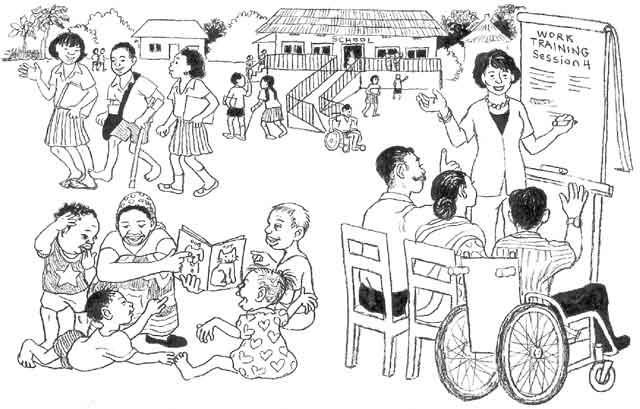Your progress
0%
The Education module is made up of the following elements.
Use your mouse or keyboard to expand each of the headings below.

In this element, the focus is mainly on children aged three years and older.
Primary education is the first stage of schooling, and should be free and compulsory for all children. It is the focus of the Education for All initiative proposed by UNESCO, and the target of most educational funding. Children with disabilities, like any other children, should be included in local primary schools so that they learn and play alongside their peers.
Learn about Primary education now.
Secondary and higher education includes all formal education beyond the “compulsory” primary level. For young people with disabilities, further education can be a gateway to a productive and fulfilled life, and yet they are often excluded.
Learn about Primary education now.
Non-formal education includes a wide range of educational initiatives in the community. These can include home-based learning, government programmes and community initiatives. It tends to be targeted at specific disadvantaged groups and has specific objectives. For some learners, non-formal education can be more flexible and effective than the formal education system, which may be too rigid and be seen as failing to provide quality education for all.
Non-formal education should be complementary to, and not seen as a substitute for, an inclusive formal system. Sometimes non-formal education is inappropriately offered as a “second best” option for children with disabilities, denying them their legal right to formal education. The focus here is on non-formal education for children rather than adults.
Lifelong learning includes all the learning that takes place throughout life, in particular the learning opportunities for adults not covered in the other sections. It refers to the knowledge and skills required for employment, adult literacy and all types of learning that promote personal development and participation in society. The focus in this section is on adults rather than children.